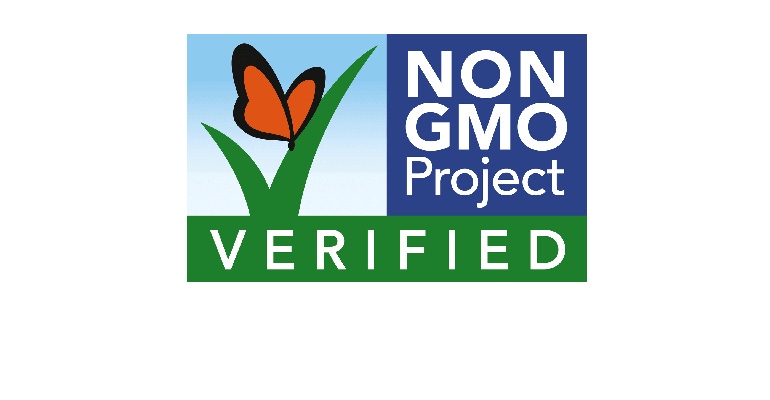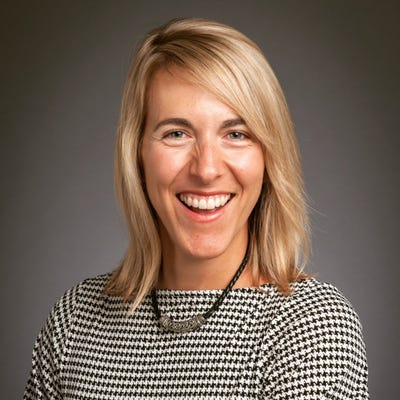As the Non-GMO Project marks the 10th Non-GMO Month, we chatted with project leader Megan Westgate about the state of the effort, “blue-dot” consumers and the food-tech future.
October 28, 2019

Twelve years ago, the Non-GMO Project set out to celebrate the right to choose non-GMO, the start of a journey for consumers to start paying attention to their food and the ways their shopping choices impact the world and for industry to help educate shoppers and make those decisions easier.
As a time to reflect on our food supply during October’s Non-GMO Month, we caught up with Westgate to learn what drives her passion for educating consumers and preserving our agricultural system.
The butterfly is flying high across North America. What has defined the non-GMO Project’s success and relevance over the last dozen years?
Megan Westgate: We have been blessed by tremendous support from everyone who cares about this issue–from families shopping at their community cooperatives to food companies large and small, as well as farmers and their families. When we first started, only a handful of people knew about GMOs in the food supply. We worked hard in the early years to educate ourselves and everyone else, and to provide a better way—by labeling non-GMO foods to give people the knowledge and the choice about what to eat.
Congratulations on the 10th anniversary of Non-GMO Month. What are you most proud of that your team has built over the years?
M/W: Non-GMO Month has traditionally been when we work extra hard with retail grocery stores to educate their staffs and their customers about GMOs and why to avoid them. We are providing an informed choice: Consumers get to vote with their dollars for a better, more transparent food system. We’re really proud of the butterfly; it’s one of the most recognizable symbols of trust and transparency at the grocery store.
What does this industry need going forward to ensure the next 10 years?
MW: We need to work together and realize we are all on the same team. Organic, non-GMO, fair trade, Global Animal Partnership, Marine Stewardship Council, Rainforest Alliance—we’re all working toward a more sustainable and just food system that takes care of ourselves and our planet. Being non-GMO is not enough, but it’s a start. At the core of being non-GMO is the recognition that nothing happens in isolation in nature. Everything is connected.
Any new trends to watch out for or challenges we can anticipate?
Like most businesses in any category, we’re seeing the largest generation in history— the millennials—have a big impact on the food industry. They grew up with natural and organic food, and now they’re demanding to see it wherever they shop. They are what we call “blue-dot” shoppers. That means they see themselves in the center of their phone screens as a blue dot and the world comes to them. They want to find premium organic, natural, non-GMO food in new places and formats, like single-serve and ready-to-eat products.
One of the challenges we face is that there are more than 300 biotech companies today, rolling out all kinds of new products using new genetic engineering techniques. These new GMOs are just as bad as the old GMOs, but many of them are going to be unregulated and unlabeled. Consumers don’t know that we are living in a sort of Wild West when it comes to genetic engineering showing up in lots of strange new places like synthetic milk protein or plant-based meat alternatives.
With the field of genetic engineering becoming more complex, our right to make informed choices is more important than ever. What new GMOs should we know about?
First, we should all still be very concerned about the old GMOs—commodity corn, soy, sugar beets and cotton are the big ones. There is still unbelievable damage happening to our soil, water and air because of the production of glyphosate-resistant GMO crops. One good way to affect change is to look for Non-GMO Project Verified meat, dairy and eggs because those animals can’t be fed those GMO crops.
But the new GMOs are just as bad for similar reasons. People should be very skeptical about any benefits that biotech companies are making about transgenic, gene-edited or gene-silenced food. People want their food to be natural. GMOs—new and old—are unnatural and unnecessary.
How can people get involved in building a safe, healthy non-GMO food supply in their communities?
Every butterfly represents a product line and a supply chain that has been protected, and that means a farmer somewhere is making the choice to grow a non-GMO crop. We spoke to a hog farmer from Iowa recently, and he worked with a farmer’s union there to establish a non-GMO feed mill. Because consumers are looking for Non-GMO Project Verified pork products and paying a little extra for them, he and his farmer friends can grow non-GMO feed crops, and as a result they can produce Non-GMO Project Verified ham and bacon and pork chops.
He told me that his animals do better on non-GMO feed, his farmers get paid more for their crops and their hogs, and they can make a sustainable living by farming more sustainably. Everyone is a winner, thanks to consumers' choice to vote for a better system with their dollars.
After years of passionate food advocacy and leadership, what keeps you coming to work every day?
MW: It’s so exciting to see the larger good food movement taking off. We’re just a small but important part of a much bigger conversation. Today, we know that there is a troubling connection between industrial agri-business and climate change—the single biggest problem the human family has ever faced. We also know that agriculture done right—non-GMO, organic, regenerative—can actually slow or even reverse climate change caused by excess carbon in the atmosphere. So, while our work is incredibly gratifying, there is so much more to be done.
About the Author(s)
You May Also Like




